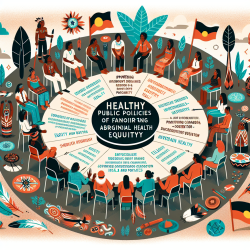The landscape of vaccine safety is complex, yet it holds critical insights that can be harnessed to improve the skills of practitioners in online therapy services. A deep dive into the research article "Vaccine Safety" by Destefano et al. reveals essential findings that can guide practitioners in integrating these outcomes into their practice, ultimately enhancing the quality of care provided to students in schools.
Understanding Vaccine Safety
Vaccines have significantly reduced the prevalence of many life-threatening diseases. However, their administration is not without risks, albeit rare. The article "Vaccine Safety" highlights the importance of rigorous pre- and post-licensure evaluations to monitor and ensure vaccine safety.
Key Findings from the Research
The research underscores several critical points:
- Vaccines undergo extensive safety evaluations before being licensed, including laboratory tests, animal studies, and phased human clinical trials.
- Post-licensure safety monitoring is crucial for detecting rare or delayed adverse events. Systems like the Vaccine Adverse Event Reporting System (VAERS) play a vital role in this process.
- Recent advances in vaccine safety include the development of standardized case definitions for adverse events, which help in comparing safety data across different trials and settings.
Integrating Research into Practice
For practitioners in online therapy, especially those working with schools, understanding and communicating the safety of vaccines is paramount. Here are some practical steps to integrate these findings into your practice:
1. Stay Informed
Regularly update your knowledge on vaccine safety. Engage with reliable sources such as the Centers for Disease Control and Prevention (CDC) and the World Health Organization (WHO).
2. Educate and Reassure
Provide accurate information to parents and students about the benefits and risks of vaccines. Use evidence-based resources to address concerns and dispel myths.
3. Monitor and Report
Encourage parents and school staff to report any adverse events following immunization. Familiarize yourself with systems like VAERS to understand how to document and follow up on such reports.
4. Collaborate with Healthcare Providers
Work closely with school nurses and local healthcare providers to ensure a coordinated approach to vaccine education and safety monitoring.
Encouraging Further Research
While current research provides a robust foundation, ongoing studies are essential to continually improve vaccine safety. Practitioners should advocate for and participate in research efforts, contributing to a broader understanding of vaccine impacts.
Conclusion
By integrating the outcomes of vaccine safety research into your practice, you can enhance the quality of care and support provided to students. Staying informed, educating stakeholders, monitoring adverse events, and collaborating with healthcare providers are crucial steps in this process.To read the original research paper, please follow this link:
Vaccine Safety.










